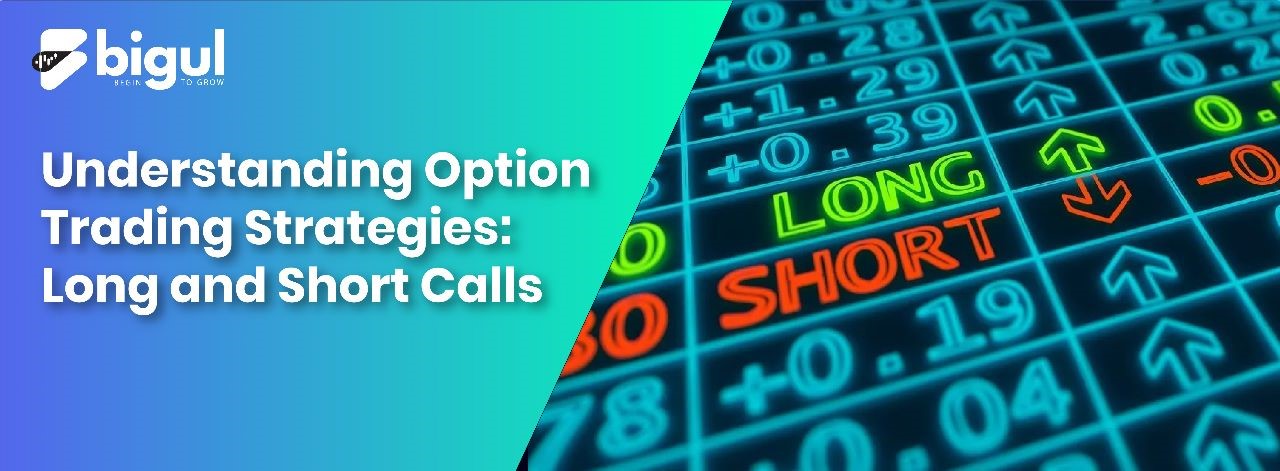Options trading is a popular financial practice that lets investors profit from an asset’s price movement without owning it. However, with so many option trading techniques, newbies may struggle to understand them. Long and short-call options are basic option trading techniques that involve purchasing or selling the right to acquire an underlying asset at a defined price within a certain time frame.
This article will examine long and short-call options, including their pros and cons.
Also Read | Understanding Covered Call Option Trading Strategies
What is the Long Call Option?
In a long call option trading strategy, an investor buys a call option contract that gives them the right, but not the duty, to buy an underlying asset at a strike price within a certain timeframe. Investors utilise this method when they think the asset’s price will rise.
For instance, an investor buys a long call option contract for a stock at Rs 1,500 with an Rs 100 premium. The investor can buy the shares for Rs 1,500 if the stock price climbs to Rs 1,700 during the stipulated period. They can sell the shares at Rs 1,700, making Rs 100 (less the option premium).
The potential profit in a long call option trade is unlimited, as the underlying asset price can continue to rise. However, the investor risks losing the premium paid if the underlying asset’s price does not increase as anticipated.
Advantages and Disadvantages of Long Call Option Trading Strategy
Now that we have defined a long call option and examined an example of how it operates, it is essential to understand the advantages and disadvantages of this form of options trading strategy.
Advantages of Long Call Option Trading Strategy:
- The limited risk with unlimited profit potential
- Lower upfront cost compared to buying the underlying asset
- Opportunity to benefit from price increases without owning the underlying asset
- Flexible exit strategies, such as selling the option before expiration
Disadvantages Of Long Call Option Trading Strategy
- Time decay erodes the value of the option over time
- Requires accurate timing to profit, as the asset price must increase before the expiration
- Losses can be significant if the asset price does not increase as expected
- It may be subject to high volatility, which can increase the cost of the option.
Factors that Affect the Success of Long Call Option Trades
Numerous variables, including stock price movement and market sentiment, can affect the success of long-call option transactions. Here are the necessary details.
- Underlying Asset Price Movement: If the underlying asset price doesn’t move in the expected direction, the long call option trade may not be profitable.
- Time Until Expiration: As time passes, the option’s value may decrease, making it less valuable.
- Implied Volatility: Higher implied volatility can increase the option’s value, while lower volatility can decrease its value.
- Strike Price: The option’s strike price affects its cost and potential profitability.
- Interest Rates: Changes in interest rates can impact the price of the underlying asset and the option’s value.
- Market Conditions: General market conditions and trends can impact the success of any trade, including long call options.
- Options Greeks: Factors such as delta, gamma, theta, and vega can affect the price and value of the option.
- Trading Fees and Commissions: These can impact the overall profitability of the trade.
What is the Short Call Option?
A short call option is an options trading method in which the seller of the option contract commits to sell the underlying asset to the buyer at the strike price. The buyer pays the option contract seller a premium to purchase the underlying asset at the strike price. Say the underlying asset is a stock with a market price of Rs 500 per share. The short call option contract seller promises to sell the stock to the buyer at a strike price of Rs. 550 a share, higher than the market price. Sellers charge Rs 20 per share for this right.
The seller keeps the premium if the stock price is below the strike price at expiration. If the stock price increases over the strike price, the buyer will exercise their option and compel the seller to sell at the lower strike price, resulting in a loss.
Short-call options are dangerous and demand careful analysis before trading.
Advantages and disadvantages of Short Call Option Trading Strategy
The short-call option trading strategy has advantages and disadvantages to consider before entering a trade.
Advantages of the Short Call Option Trading Strategy
- Generates income through premium collection
- It can be used as a hedging strategy to limit potential losses
- Allows traders to profit in a sideways or bearish market
Disadvantages of the Short Call Option Trading Strategy
- Limited profit potential and unlimited risk
- High level of risk due to the possibility of significant losses
- Requires a high level of expertise and analysis
- This can lead to margin calls and forced liquidation of assets
Factors that Affect the Success of Short Call Option Trades
Here are some factors that can affect the success of short-call option trades:
- The Underlying Stock Price Movement: A short call option is profitable when the stock price remains below the strike price, so price movements in the underlying stock can impact the success of the trade.
- Time Decay: As expiration approaches, the option’s time value decreases, making it less valuable for the seller.
- Implied Volatility: Higher volatility can increase the option’s price, while lower volatility can decrease it.
- Margin Requirements: Short call option trades have margin requirements that must be met, which can impact the potential profitability and risk of the trade.
- Dividend Payments: If the underlying stock pays dividends, it can impact the option’s value and the trade’s success.
Comparison of Long and Short Call Option Trading Strategies
Long call option trading includes buying a call option with the idea that the underlying stock’s price will grow, whereas short call option trading involves selling a call option with the hope that it would stay stable or drop. Short call options have limited profit and unlimited risk, while long call options offer limitless profit and limited danger.
Before deciding between the two techniques, traders must evaluate market circumstances, volatility, and risk tolerance. Option trading tactics in India need prudence and are regulated.
Conclusion
Successful options trading requires knowledge of both long and short-call option trading methods. Traders may choose which strategy best suits their aims and risk tolerance by comparing the pros and disadvantages of each approach and considering several other criteria.
Also Read | Understanding Options Trading Strategies: Comprehensive Guide







.jpg)
.jpg)
